 Tom Brady has done it again. But like everything else in the world, it’s different this time around. For the first time in his career, Brady was not under center for the New England Patriots this season. Instead, he opted to move south this past off-season to take over the reigns for the Tampa Bay Buccaneers. And in his first season, he has led the Bucs to the Super Bowl. This marks the 10th time in Brady’s 21-year NFL career that he has reached the big game, which is an absolutely mind-boggling stat. But at this point, nothing should be surprising with Brady, as he appears to be a magic man. I’ll have more on the game, and the logistics behind a truly different Super Bowl in a later column. And now on to this week’s logistics news.
Tom Brady has done it again. But like everything else in the world, it’s different this time around. For the first time in his career, Brady was not under center for the New England Patriots this season. Instead, he opted to move south this past off-season to take over the reigns for the Tampa Bay Buccaneers. And in his first season, he has led the Bucs to the Super Bowl. This marks the 10th time in Brady’s 21-year NFL career that he has reached the big game, which is an absolutely mind-boggling stat. But at this point, nothing should be surprising with Brady, as he appears to be a magic man. I’ll have more on the game, and the logistics behind a truly different Super Bowl in a later column. And now on to this week’s logistics news.
- Scarce niche syringes complicate US plan for COVID vaccinations
- Walmart in the news:
- Biden wants to replace government fleet with electric vehicles
- UPS: Feds must help fund electric last-mile delivery
- Timberland, Vans parent maps supply chains through tier 4
- Morrisons to reduce food waste from own food-making operations
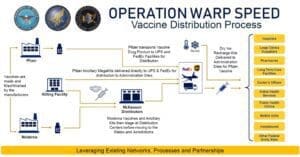 As the COVID-19 vaccine slowly rolls out across the country, delays have made the biggest headlines as the supply of vaccinations has not met the initial amount promised under Operation Warp Speed. Now, at least for the Pfizer vaccine, an unlikely cause is slowing things down again: a niche syringe shortage. The vaccine is shipped in vials that initially indicated they held five doses; however, by using low dead space syringes, a sixth dose can be extracted. So, while this seems like it should speed things along, there is a shortage of the necessary syringes to extract a sixth does. Becton Dickinson began scaling up syringe production months before the vaccine rollout, which was well before anyone knew that the low dead space syringe would be needed for getting more shots out of Pfizer’s vaccine vials. Becton Dickinson’s government contract includes only limited supply of the niche product. If healthcare officials can figure out ways to procure the niche syringe, vaccine supplies could be stretched by 20 percent.
As the COVID-19 vaccine slowly rolls out across the country, delays have made the biggest headlines as the supply of vaccinations has not met the initial amount promised under Operation Warp Speed. Now, at least for the Pfizer vaccine, an unlikely cause is slowing things down again: a niche syringe shortage. The vaccine is shipped in vials that initially indicated they held five doses; however, by using low dead space syringes, a sixth dose can be extracted. So, while this seems like it should speed things along, there is a shortage of the necessary syringes to extract a sixth does. Becton Dickinson began scaling up syringe production months before the vaccine rollout, which was well before anyone knew that the low dead space syringe would be needed for getting more shots out of Pfizer’s vaccine vials. Becton Dickinson’s government contract includes only limited supply of the niche product. If healthcare officials can figure out ways to procure the niche syringe, vaccine supplies could be stretched by 20 percent.
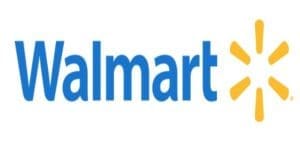 Walmart is ramping up its efforts to help speed the vaccination process. The retailer plans to offer the vaccine seven days a week at its pharmacies, through planned in-store vaccination clinics, and at large community events. In a statement, Walmart said that once it is operating at full capacity, it expects to be able to deliver between 10 and 13 million doses per month. To prepare for the massive task at hand, Walmart has put a number of initiatives in place, including training its pharmacists and pharmacy technicians, building a digital scheduling tool, partnering with state and federal agencies, and ensuring all pharmacies had freezers and / or dry ice for vaccine storage.
Walmart is ramping up its efforts to help speed the vaccination process. The retailer plans to offer the vaccine seven days a week at its pharmacies, through planned in-store vaccination clinics, and at large community events. In a statement, Walmart said that once it is operating at full capacity, it expects to be able to deliver between 10 and 13 million doses per month. To prepare for the massive task at hand, Walmart has put a number of initiatives in place, including training its pharmacists and pharmacy technicians, building a digital scheduling tool, partnering with state and federal agencies, and ensuring all pharmacies had freezers and / or dry ice for vaccine storage.
What does one do when it is ready to help with a new product launch? Make deliveries with drones of course. This week, Walmart partnered with Coca-Cola and DroneUp to make deliveries of Coca-Cola’s newest product. Under the partnership, drone deliveries of Coca-Cola with Coffee will be made during daylight hours to single family homes within a one-mile radius of a Walmart supercenter in Coffee County, Georgia. While a price point of $2.32 for a two-pack of either Coca-Cola with Coffee or Coca-Cola with Coffee Zero Sugar may sound like a pretty good deal, it will not be easy to get your hands on. The offer is available to those who opted in last summer to receive updates about the product launch.
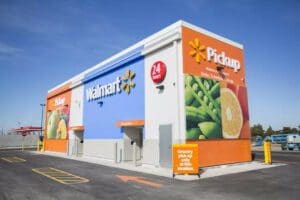 In our final piece of Walmart news, the retailer is continuing to use technology to streamline its grocery operations. The company is expanding its use of robotics to speed up its online grocery order fulfillment. Under the plan, Walmart is building dozens of small warehouses, ranging from 20,000 to 35,000 square feet, within or next to a store to lower grocery fulfillment times. Walmart will use robots to help pick, pack, and dispense online grocery orders as fast as possible. The company declined to provide financial specifics, such as cost savings, on the project.
In our final piece of Walmart news, the retailer is continuing to use technology to streamline its grocery operations. The company is expanding its use of robotics to speed up its online grocery order fulfillment. Under the plan, Walmart is building dozens of small warehouses, ranging from 20,000 to 35,000 square feet, within or next to a store to lower grocery fulfillment times. Walmart will use robots to help pick, pack, and dispense online grocery orders as fast as possible. The company declined to provide financial specifics, such as cost savings, on the project.
President Joe Biden will start the process of phasing out the federal government’s use of gas-powered vehicles and replacing them with ones that run on electricity. The announcement is the fulfillment of a promise Biden made on the campaign trail to swap government fleet vehicles with American-made EVs. As of 2019, there were nearly 650,000 vehicles in the federal government’s fleet, according to the General Services Administration. This includes 245,000 civilian vehicles, 173,000 military vehicles, and 225,000 post office vehicles. Those vehicles traveled 4.5 billion miles in 2019.
“The federal government also owns an enormous fleet of vehicles, which we’re going to replace with clean electric vehicles made right here in America, by American workers.”
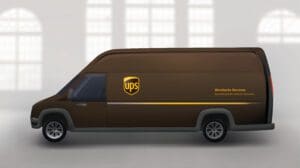 Biden’s decree is good news for UPS, as this week the company said that last-mile delivery and the electric vehicles it will take to fuel it will require a jump start from public money that should be included in the next infrastructure package. Thomas Jensen, the company’s senior government relations executive, pointed out that while electrification has been touted extensively by the Biden administration, there have been few details on how the administration plans to pay for it. Jensen said that while UPS operates the largest private alternative fuel vehicle fleet in the country, it is also investing in heavy-duty electric trucks. A standing order of 150 heavy-duty Tesla tractors are expected to be delivered next year.
Biden’s decree is good news for UPS, as this week the company said that last-mile delivery and the electric vehicles it will take to fuel it will require a jump start from public money that should be included in the next infrastructure package. Thomas Jensen, the company’s senior government relations executive, pointed out that while electrification has been touted extensively by the Biden administration, there have been few details on how the administration plans to pay for it. Jensen said that while UPS operates the largest private alternative fuel vehicle fleet in the country, it is also investing in heavy-duty electric trucks. A standing order of 150 heavy-duty Tesla tractors are expected to be delivered next year.
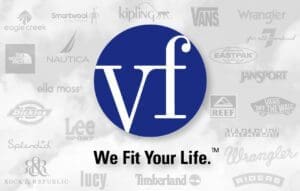 Over the last few years, supply chain traceability has become more important. For many companies, it has been increasingly difficult to map its supply chain. VF Corporation, the parent company of brands including The North Face, Timberland and Vans, has created a traceability mapping program that discloses tiers 1 through 4 of its products’ supply chains. The company is using traceability to map 100 of its brands’ products by December 2021, and currently has 46 product maps available online. VF said its teams will use the data to identify opportunities for sustainability and labor well-being improvements shrouded within its global supply chain.
Over the last few years, supply chain traceability has become more important. For many companies, it has been increasingly difficult to map its supply chain. VF Corporation, the parent company of brands including The North Face, Timberland and Vans, has created a traceability mapping program that discloses tiers 1 through 4 of its products’ supply chains. The company is using traceability to map 100 of its brands’ products by December 2021, and currently has 46 product maps available online. VF said its teams will use the data to identify opportunities for sustainability and labor well-being improvements shrouded within its global supply chain.
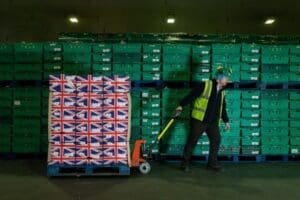 Food waste is another issue that has been gaining more attention of late, with more and more companies looking at ways to reduce food waste throughout the distribution chain. Food waste charity Wrap found that food factories are the second highest source of food waste after households, which typically happens because of overproduction, imperfections, mislabeling or because the food runs out of shelf life. Morrisons, the fourth largest supermarket chain in the UK, has announced it will redistribute surplus food to 30,000 families in need through food redistribution charity The Bread and Butter Thing (TBBT). The range of products donated will include fruit and vegetables, meat and fish, prepared food and bread.
Food waste is another issue that has been gaining more attention of late, with more and more companies looking at ways to reduce food waste throughout the distribution chain. Food waste charity Wrap found that food factories are the second highest source of food waste after households, which typically happens because of overproduction, imperfections, mislabeling or because the food runs out of shelf life. Morrisons, the fourth largest supermarket chain in the UK, has announced it will redistribute surplus food to 30,000 families in need through food redistribution charity The Bread and Butter Thing (TBBT). The range of products donated will include fruit and vegetables, meat and fish, prepared food and bread.
That’s all for this week. Enjoy the weekend and the song of the week, Heart’s Magic Man.

















